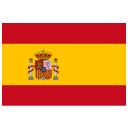Tattoo Ink and Mythology: Depicting Legends and Folklore in Tattoos
Posted by PAUL PARK

Tattoos are more than just skin deep - they're often profound expressions of the individual, their beliefs, experiences, and interests. Among the myriad themes that have captured the hearts and skin of ink enthusiasts worldwide, mythology holds a special place. This ancient form of storytelling, which features gods, goddesses, heroes, and creatures, offers a treasure trove of symbols, characters, and narratives that can be masterfully depicted through the medium of tattooing. This article explores the fascinating intersection of tattoo ink and mythology, delving into how legends and folklore are brought to life on human canvases.
Key Takeaways
- Tattooing is a powerful means of expressing personal beliefs, experiences, and interests, with mythology being a common source of inspiration.
- Mythological tattoos can serve a dual purpose of being aesthetically pleasing and carrying profound symbolic meanings.
- Various mythologies from around the world, including Greek, Norse, Egyptian, and Native American, are frequently depicted in tattoo art.
- The versatility of mythology-based tattoos allows for vast creative expression, from simple symbols to elaborate, detailed depictions of gods, goddesses, or legendary creatures.
- Choosing a mythological tattoo often involves a deep understanding of the mythology, its symbolism, and its cultural context.
The Art of Mythological Tattoos
Tattoo artistry, much like any other form of art, is a vehicle for expression. Its unique permanence adds a layer of commitment and conviction to its symbolism, intensifying the bond between the tattoo wearer and the chosen design. When the design springs from the rich soil of mythology, it carries with it the weight of centuries-old narratives, beliefs, and cultural underpinnings.
Mythologies as Sources of Inspiration
Different mythologies from around the world - Greek, Norse, Egyptian, Celtic, Hindu, Japanese, or Native American, to name a few - have found their way into the world of tattoos. These mythologies, with their pantheon of gods and goddesses, epic heroes, and fantastical creatures, offer endless possibilities for artistic and symbolic interpretation. The image of the Norse god Odin, the Greek goddess Athena, or the Japanese deity Amaterasu, for example, can serve as an homage to these cultures and as a personal statement about the tattoo wearer’s beliefs or aspirations.
Exploring Legends, Folklore, and Folktale Icons in Tattoos
Greek Mythology
Greek mythology is a frequent source of inspiration for tattoo enthusiasts due to its rich pantheon of gods, goddesses, heroes, and mythical creatures. For instance:
Zeus: As the king of the gods, Zeus often symbolizes leadership, power, and authority. His lightning bolt is a popular symbol for tattoos.
Athena: The goddess of wisdom and warfare, Athena is typically represented with an owl or an olive tree. Her image is often chosen by those seeking to embody wisdom or strategic thinking.
Hermes: Known for his winged sandals, the god of travel and messengers is a favorite among those who love to travel or those seeking guidance.
Norse Mythology
Norse mythology also holds a significant place in the tattoo world with its bold and powerful imagery.
Odin: The Allfather of the gods and god of wisdom, war, and poetry, Odin is often depicted with his two ravens, Huginn and Muninn, symbolizing thought and memory.
Thor: God of thunder, Thor is often depicted with Mjolnir, his hammer, representing strength and protection.
Yggdrasil: The World Tree, connecting the nine realms of the Norse cosmology, is a common choice for those who wish to symbolize interconnectedness and harmony with nature.
Celtic Folklore
Celtic folklore and symbols are famous for their intricate knotwork and nature motifs.
Celtic Cross: An iconic symbol of Celtic identity, it embodies the unique blend of cultural and religious influences.
Celtic Knot: Representing the interconnectedness of life and eternity, the Celtic Knot is a popular choice for those seeking a symbol of unity and balance.
Claddagh: Representing love, loyalty, and friendship, this Irish symbol is often chosen to symbolize these values in the wearer's life.
Japanese Folklore
Japanese folklore and myth provide a broad array of iconic figures and motifs for tattoos.
Oni: These demons or ogres, traditionally depicted in masks at festival times, symbolize protection from evil forces when used as a tattoo.
Koi: Koi fish are a popular symbol in Japanese culture, representing luck, prosperity, and good fortune.
Cherry Blossoms: These beautiful flowers are a poignant symbol of the fleeting nature of life due to their short blooming times, making them a favorite choice for those wishing to express the concept of mono no aware, or the beauty of impermanence.
Each of these figures and motifs carries a history and symbolic meaning that resonates on a personal level with the person choosing to wear them as a tattoo. It's a testament to the timelessness and universality of these legends and folktales that they continue to inspire us, millennia after they were first told.
The Symbolism Behind Mythological Tattoos
Beyond their aesthetic appeal, mythological tattoos often carry deep, symbolic meanings. They might symbolize strength, wisdom, courage, love, or any number of human experiences and ideals. The symbolism of these tattoos is often multilayered, reflecting not only the myths themselves but also how individuals relate to these ancient stories in their modern lives.
The Creative Process
Bringing these myths to life through tattooing is a complex and creative process that involves more than just replicating an image or symbol. It requires a deep understanding of the mythology, its symbols, and its cultural context. Moreover, it demands the ability to translate these elements into a design that fits the human body's contours and movements, while also reflecting the tattoo wearer's personal connection to the myth.
Conclusion
From Greek gods and Norse runes to Native American spirit animals and Japanese Oni demons, mythological tattoos serve as living, breathing canvases of ancient tales and beliefs. They allow us to carry our chosen myths with us, not just in our minds and hearts, but quite literally on our skin. In this way, tattoos become more than just body decoration; they become personal amulets, declarations of identity, and links to our collective past, etched permanently in the ink of our present.
Paul Park, The Xtreme Team
For more information on our sets, please take a look at our piece on Xtreme Inks: Artist Collections.
TAGS:









